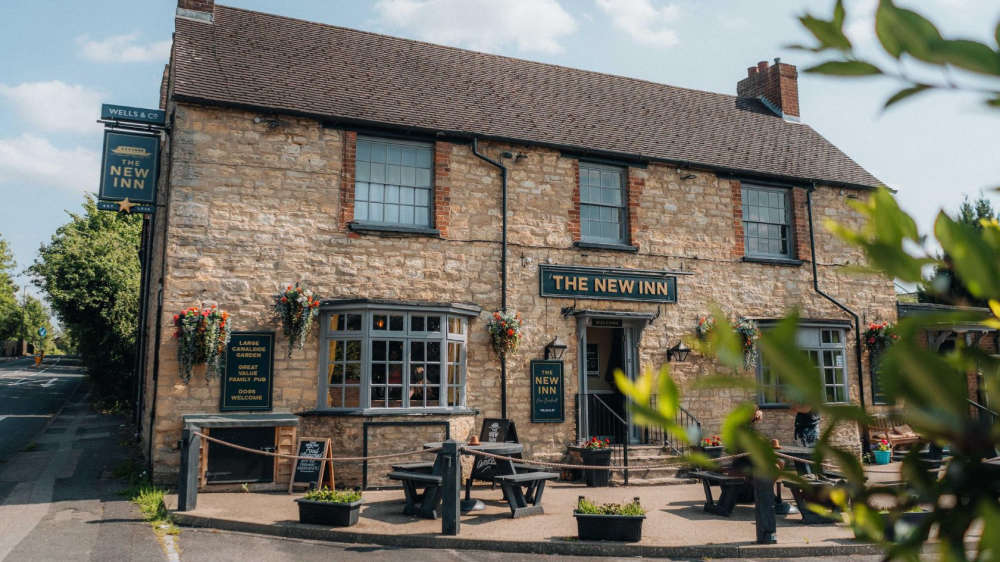
Ask an estate agent what they do for a living and I bet they’ll try their best to describe their job without physically using the words ‘estate agent.'
I remember when I left my job to become an estate agent, the looks on my old co-workers’ faces were of confusion and disgust. I’m not overplaying this either - according to the 2024 Ipsos Veracity Index, only 37% of people trust estate agents to tell them the truth (up from a shocking 28% in 2023). Two main questions spring to mind:
- Where does this distrust come from?
- Why do people continue to use estate agents when they trust them so little?
First we need to understand if this is an industry problem or a UK problem. For the most part, ‘realtors’ are well-respected professionals in most developed countries; especially the USA, Canada and Australia. So much so that their average fees are 5 - 6% compared to the average fee in our country of 1.18% + VAT in 2025*. You’d be forgiven for thinking that the gulf in trust and fees is simply because you have to be qualified and licensed to be a real estate agent in those countries, whereas in the UK you don’t. However, countries like Spain and Portugal don’t have licensing requirements for individual agents yet still have an average fee of around 5%...
So what do those licensed countries have in common with the unlicensed countries that charge a similar fee, and what do they both do differently to the UK? The answer is structure.
Firstly it’s important to acknowledge that in almost all other countries, there is one agent representing the seller, and another representing the buyer. Which if you think about it makes complete sense. In the UK, if you want to buy a home, you contact the people who are being paid to represent the owner, and are reliant on them giving you honest advice for you to make a decision. Reading this in black and white makes you realise how crazy our system is. Is it any wonder 63% of people don’t trust estate agents to tell them the truth when their client is only on one side of the transaction, and they’re only paid if they sell the home? That alone is reason enough for the low trust score, but unfortunately there is more to the story…
In most countries, real estate agents are commission-based only. Not only does this mean that they simply have to deliver results, but as they are paid the lion’s share (pun absolutely intended) of the commission charged, they’re able to deal with fewer clients and offer a more attentive, personal service. In contrast, UK estate agents are predominately employed and are paid a salary and lower commission percentage. This means that estate agents are forced by their employers to chase volume over quality of result.
According to Glassdoor, the average base pay for an estate agent in 2025 is £22,000 per year, and average commission is £7,000 per year, giving a total of £29,000 per year. Based on the average asking price in July 2025 for new properties going on the market in Milton Keynes of £359,727**, the average estate agency commission would be £4,245 + VAT. A typical estate agent is paid 5% of the estate agency’s commission, meaning they would earn £212.25 in commission per home. To earn £7,000 per year, they’d need to complete on 33 property sales. And that’s so much worse than it sounds…
Over the first half of 2025, the average estate agent in Milton Keynes only exchanged contracts (when the sale becomes legally binding) on 49.46% of the homes they were instructed to put on the market**. Let that sink in. There is less than a 50% chance that you’ll move home if you instruct the average agent. If you are one of the lucky 50.54% that does move, you’ll on average only achieve 96.59% of your asking price. That’s a loss of £12,267 based on the average instructed house price in July 2025.
But if an agent is paid a commission percentage then surely it’s in their interest to sell a home for as much as possible? Well, let’s do the maths… If they achieved the extra £12,267 then the company’s fee would increase by £144.75 + VAT. And the individual staff member would receive a whopping £7.24 (before tax). So it’s simply a case that the agent, who may well want to help as much as possible, is being rewarded for selling as many homes as they can, rather than selling homes for as much as they can. Your priority is usually to maximise your sale price, but the priority of the company you’re paying to represent you in the sale is very different. Don’t blame the staff member, blame the bosses of the estate agency for making their employees work in this way.
So to summarise an answer to the first question posed:
People distrust estate agents because the average agent in Milton Keynes helps less than half of their sellers actually move home, and when they do, on average they charge them £5,094 to sell their home for £12,267 under the asking price…
But hold on - if estate agents aren’t paid unless a sale completes, how can they survive if they only generate income on 49.46% of the homes they market (and spend significantly to do so)?
Those who watched the Panorama documentary on 14th July (which is still on BBC iPlayer) about questionable practices employed by two of the largest estate agencies, won’t be surprised to learn that due to the above, estate agencies typically have multiple streams of income. One of the most lucrative streams is financial services - mortgages.
According to research from Zoopla, people who moved between mid 2022 - end of 2024 had lived in their homes for an average of 9 years, which means repeat customers aren’t regular. Compare that to a typical fixed period of 2 - 5 years between remortgages, and it’s easy to see why this is an attractive income stream - ultimately it doesn’t depend on you deciding to move home. This also means that it is quick and cost-effective when compared to selling a home.
So next time you have an estate agent tell you that your home is worth considerably more than it reasonably should be, stop to question whether or not they are simply just telling you what you want to hear so they can market your home and use it as a honeypot to attract buyer enquiries that they can then channel in front of their mortgage broker…
This really does beg the second question - given the above, why do people still use estate agents?! To which I’d give the following two answers:
- Because the home buying/selling process in this country is archaic
- Because if a bad estate agent can negatively impact the value of your home, then a great estate agent must be able to positively influence the value too.
Anyone who has moved house knows that the excitement quickly turns to stress and anxiety. The lack of upfront information, the number of people involved, chains and the lack of any repercussions for either party changing their mind, makes moving house widely considered one of the most stressful life events.
In fact, the same data as above shows that it takes 131 days for those selling with the average agent in Milton Keynes to go from SSTC (sold subject to contract, or when an offer is formally accepted) to completion**. Add that to the 66 days it takes to find a buyer** and that means an average of 197 days to move home from the point on going on the market**. Add to the fact that the average agent in Milton Keynes has 25.52% of their agreed sales fall through**, it’s absolutely crucial to have a professional holding your hand through the pitfalls over the 6 months it takes to move home.
The rise and stall of the online ‘DIY’ estate agents that give the option to a seller to do their own viewings and agree their own sales for a ‘cheap’ (it’s impossible to say a fee is ‘cheap’ as properties don’t have definitive values - ‘cheap’ fees may end up being ‘expensive’ if they lead to a low sales price) upfront payment showed that estate agents do more than just agree a sale. So although only 37% of people trust estate agents, they would still rather pay them to provide an arguably sub-standard service, than tackle the moving process alone.
So the big question - how do you avoid an ‘average agent’ and find one of the great estate agents in Milton Keynes?
Well, in my next article I’ll be sharing the exact steps you should be taking to avoid being led down the garden path by those pesky, untrustworthy estate agents…
Dominic Marcel is the Founding Partner at Lion Estates and Lion Prestige of Woburn. A team of self-employed, personal estate agents, their focus is on quality marketing and dedicating one agent to each of their clients to ensure high quality of service. They’ve been given a ‘Gold Award’ in both 2024 and 2025 in The Best Estate Agent Guide, which ranks them within the top 3% of estate agents in the UK. They are looking to be the first agency in Milton Keynes to win this accolade for 3 years in a row at the EA Masters in November. You can contact Lion Estates by calling 01908 465700 or emailing contact@lionestates.co.uk. Dominic Marcel can be contacted by emailing dominic@lionestates.co.uk.
*according to hoa.org.uk
**data provided by Simon Gates OTG Ltd















